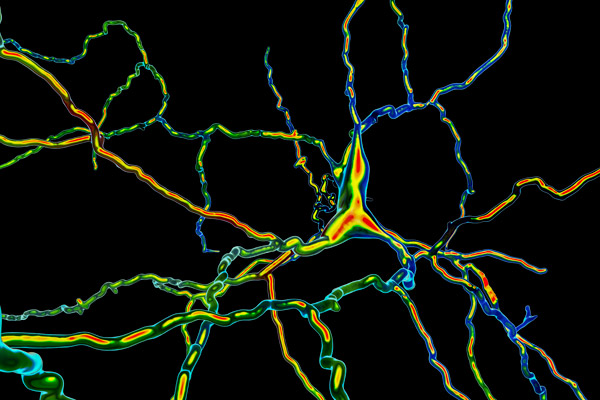
Figure 1: A computer illustration of a dopamine neuron. RIKEN researchers have shown that dopamine neurons in the ventral tegmental area encode short-term memories. © KATERYNA KON/SCIENCE PHOTO LIBRARY
Dopamine neurons in the midbrain are involved in storing short-term memories-a function previously thought to be conducted solely in the prefrontal cortex-two RIKEN neuroscientists have shown1.
Salivating over a chocolate donut and then sinking your teeth into it releases the reward chemical dopamine in your midbrain. That is one reason why it is so hard to resist such high-calorie fare-even when you know that a salad would be a much healthier choice.
Dopamine is well known for being a key component of the brain's reward system, and it is does this in animals as simple as insects. But dopamine is increasingly being recognized as playing a role in the higher cognitive functions (for example, short-term memory and decision making) of people and other mammals.
This area fascinates Shigeyoshi Fujisawa of the RIKEN Center for Brain Science (CBS). "The higher cognitive functions of humans are one of the most mysterious areas of neuroscience," he says. "In particular, how neural networks support higher cognitive functions is a very intriguing question. I'm interested in clarifying these mechanisms."
Neurons that release dopamine in the midbrain region known as the ventral tegmental area have been shown to be involved in short-term memory, but their responses are thought to be too slow to store short-term memories.
Fujisawa and Vasileios Glykos, also of the CBS, explored this question by studying mice in a maze. "What the midbrain dopamine neurons encode during working memory was unknown," says Fujisawa. "That is why we were interested in discovering how dopamine is involved in memory encoding during a working-memory task."
The pair placed mice in a passage leading to a T-intersection with arms to the left and right. They trained the mice to associate a visual cue on the left with a reward in the left arm, and vice versa. Because the visual cue was presented some distance before the branch, the mice had to rely on their short-term memories.
Observation of light emitted by active neurons in the ventral tegmental area revealed that different patterns of dopamine neurons lit up depending on whether the reward was in the left or the right arm (Fig. 1). This indicated that dopamine in the midbrain does indeed encode some short-term memory information.
"This type of neuronal computation is supposed to occur in the prefrontal cortex, but we found that the midbrain is also involved," says Fujisawa.
The findings may have implications for understanding degenerative neurological disorders like Parkinson's disease. "In Parkinson's disease, midbrain dopamine neurons die off, which causes problems with movement," says Fujisawa. "But the condition can also affect higher cognitive functions, which may be related to the death of midbrain dopamine neurons."






